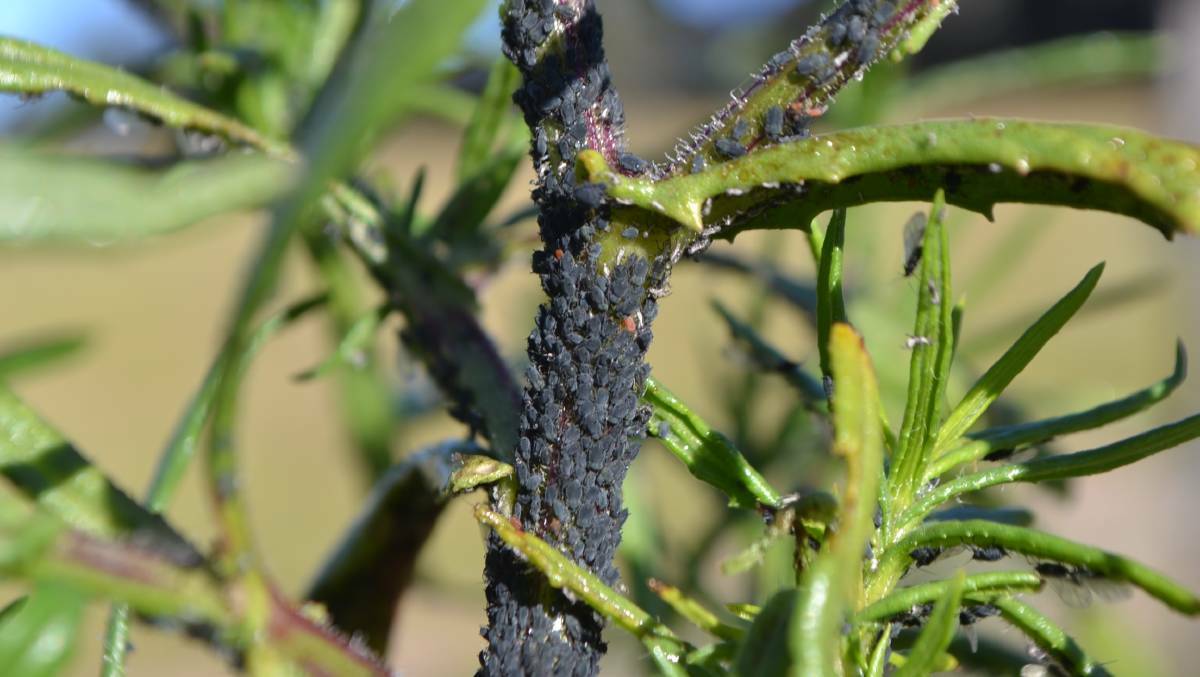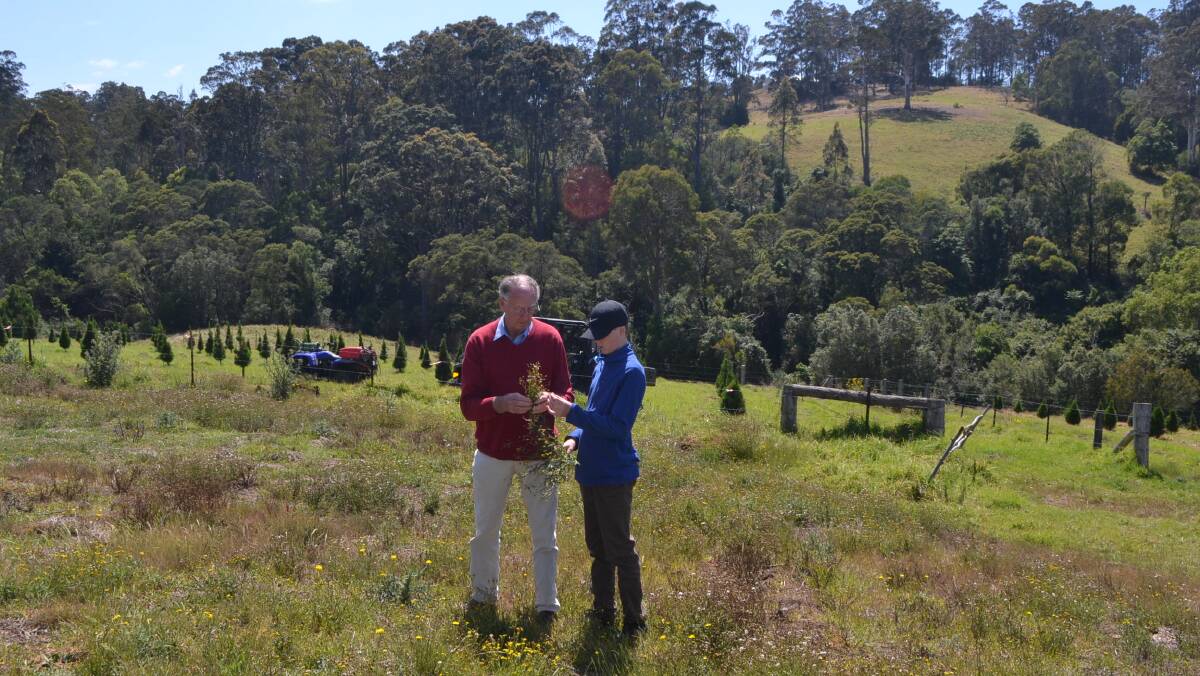
The little black aphid attacking fireweed at Tilba has attracted more attention with a weeds officer from Shoalhaven City Council last week visiting the property where the aphid was first spotted.
Subscribe now for unlimited access.
$0/
(min cost $0)
or signup to continue reading
Team leader weed management Phil Hansen took samples of the aphid, which has been identified by a Department of Primary Industries entymologist as the Aphis gossypii, or common cotton aphid.
Earlier samples sent to the DPI had deteriorated and so could not be used for identification.
Also known as melon aphid, it is widespread across south-eastern Australia and is known to feed on a very large variety of host plants. In addition to being a pest of cotton, cotton aphids feed on many other food and fibre crops, ornamentals, flowers and weeds in more than 92 plant families.
Cotton aphid causes damage to plants through feeding and by transmitting plant viruses. The aphid colonises the undersides of leaves and when present in large numbers can significantly impact plant health. Severe infestations can result in twisted stems and eventually stunted plants.
Mr Hansen said the melon aphid was considered to be quite widespread throughout Australia and it could be problematic for crops such as melons and cucumbers.
“The build up of these aphids on fireweed at Tilba is unexplained and may just be an isolated occurrence,” he said. “We might not see it for another 20 years and where it goes from here is unknown.”
He however would like to see the outbreak investigated further and the real test would be whether the aphid was still present in numbers at Tilba after the summer when fireweed typically declined.
A fireweed plan had been developed for the Shoalhaven area and he said it would be great if the aphid could be included as a control measure, subject to further study, he said.
The CSIRO and NSW DPI meanwhile continue studies of a biological control agent that would see an insect from South Africa, where fireweed originated, brought over to Australia.
Mr Hansen’s visit last week was organised by former Nowra area dairy farmer and founding member of the Kangaroo Valley Sustainable Farming Group, Robert Cochrane.

This visit was the second to Tilba for Mr Cochrane, who is now arranging a meeting with local members about the aphid at Parliament House.
He has spoken to State Member Gareth Ward to arrange a meeting with himself, and fellow State Members Shelley Hancock and Andrew Constance, as well as Minister for Agriculture Nial Blair.
“Gareth says he is happy to call the meeting and that we meet at Parliament House because that would be the most suitable place to hold the meeting,”Mr Cochrane said.
Members of the Tilba and South Narooma Landcare Group, including Tilba property owner Ron Snape who first noticed the aphid, have expressed an interest in attending.
Mr Snape said he was amazed to see the aphid starting to attack new 50 to 75mm shoots of fireweed sprouting after the recent rain.
Related stories:


